#medium: enamel and gold on glass
Explore tagged Tumblr posts
Text


Polyphemus Discovers Acis and Galatea Vase, c. 1925/30 Nicolas Constantin Platon-Argyaridès (1888-1968)
#artist: nicolas constantin platon-argyaridès#era: 20th century#medium: glass#medium: mold-blown glass#medium: enamel and gold on glass#medium: enamels and gold#genre: vase#genre: object#genre: history#movement: art deco#nationality: french#notable: revisit movement classification
2 notes
·
View notes
Text

~ Cup with Cover.
Date: 1550–1600
Place of origin: Germany
Medium: Agate, gold, enamel, glass, and gemstones
#17th century#art#16th century#history#decorative arts#history of art#16th century art#17th century art#cup with cover#german#germany#agate#gold#gemstones#1550#1600
185 notes
·
View notes
Text

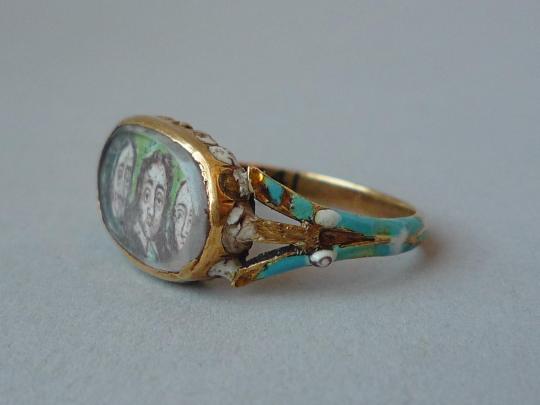


• Ring with triple portrait of Charles I by Anthony Van Dyck (1635-1636).
Date: 17th century
Medium: Gold, enamel, diamond, glass
#fashion history#history of fashion#fashion#jewelry#ring#17th century#king charles i#anthony van dick#gold#skull#diamonds#portrait
523 notes
·
View notes
Text
Soul Mate Ritual- Herbal Magick Recipe
! This contains many ingredients and even having to make some ingredients yourself but it is a very effective and powerful ritual if you decide to perform this, read thoroughly and have fun ! First we need to talk about some ethics. This ritual is designed to help bring a great love to your life. It Directly asks the Divine to determine who is best suited to you (and vice versa) and to bring that person into your life - not to break up someone else's relationship so that you may have your whim or to bind you to a specific individual whom you have in mind. Those types of actions are unethical because they thwart the free will of other people for your personal gain. Besides you don't really know as clearly as the divine who will be best suited for you - you are judging on looks, money, sexiness or whatever mundane quality that has entranced you, and that quality is not the one that necessarily helps to create a relationship that lasts a life time (or many life times)
For this ritual, you must be ready to accept the what the divine brings to you, and you MUST be ready for real love in your life. If you truly believe this is the right move for you and want to make this herbal condenser and perform this ritual, keep reading!
Ingredients:
three edible venusian herbs (banana, catnip, cherry, damiana, lemon verbena, lilac, maidenhair, myrtle, passionflower, peach, plumeria, rhubarb, raspberry, rose, strawberry, tansy, vanilla, vervain, and violet)
glass or enamel cooking pot with lid
spring or distilled water
measuring cup
vodka or grain alcohol
gold flake
amber or cobalt colored glass bottle
Place a handful of each of the three herbs you have chosen into your glass or enamel cooking pot (glass and enamel pot will not react and seep into your mixture- aluminum or iron pots will react)
Cover the herbs with spring or distilled water and bring to a simmer. Cover with lid, turn down the heat and let them simmer softly together for twenty minutes with the lid on. Allow your mixture to cool to room temperature and strain out the herbs and saving your water. Do not pour the water into your sink!
Boil again at a medium heat until the liquid has been reduced by half. Cool the extraction again, and when it is room temperature, so that you can see how much liquid you have. Add an equal amount of Vodka or Grain Alcohol as the amount of liquid extract you have in your measuring cup. Add a pinch of gold flake. Pour your condenser into your amber or cobalt-colored glass bottle (this keeps light from ageing your mixture) and store in a cool dark place. Be sure to shake it before each use. Now that you have your condenser, you are ready to perform your soulmate ritual. supplies and everything you need for it are below!
Supplies:
deep green cloth for the altar
three pink candles
vase of beautiful flowers
lovely chalice half full of fruit juice, wine, or spring water
small piece of rose quartz
incense burner
aphrodite Incense AND Oil ( to make this oil use rose petals, jasmine flowers, orris powder, rose oil, neroli oil, ylang ylang oil, you can you use the essential oil rather than the actual herb)
parchment paper
writing pen
flame candle to light your pink candles
rose petals
soul mate condenser
On a friday during the waxing moon, at a time when you will not be disturbed or interrupted gather together your supplies and set them on your altar, which should be covered with a deep green alter cloth. Place the three pink candles in the center of your altar in a triangle pattern, with the base of the triangle nearest you. Put the vase of flowers just to the left of the top candle and your chalice just to the right of the top candle. Now place the rose quartz in the center of your candle triangle. Place your incense burner and incense to your right near the edge closest to you.
Your parchment and pen lie directly in front of you on the altar. Place your flame candle to the left top side of your alter and light it. Sprinkle your rose petals randomly all over the altar.
Anoint the candles from the wick down to the bottom with your Aphrodite Oil, then anoint your third eye (the spot just above and between your eyebrows) and over your heart with Aphrodite oil. Light the pink candles with your flame candle and then using the top pink candle light your incense charcoal and place it in your incense burner atop some insulating sand. While your charcoal is igniting completely across draw a heart on your parchment paper and inside of heart a spiral. Place some incense on the charcoal and bathe the parchment paper in the incense smoke, imagining the parchment absorbing the love energy. Now charge the parchment paper by placing it above each candle flame (but not so close you ignite it!) while saying three times:
"Aphrodite Queen of night, bring me to the one who's right, Aphrodite, Morning Star, whether near or whether far, bringer of love, O Aphrodite, Draw my Soul Mate now to me, Most lovely of goddesses, O Aphrodite, and as I will, so mote it be."
Then place a drop of the soul mate condenser on your finger and seal the energy you have placed in your parchment paper by firmly anointing the spiral in the center of the heart with the liquid. Drop three drops of the condenser into the libation you have prepared in your chalice. Drink the liquid slowly as you concentrate on your heart chakra, opening and strengthening it. Feel it opening like a beautiful red rose. Let the candles burn all the way down, then fold your rose quartz stone inside the parchment and place it inside your pillow case.
Each friday evening as you relax, pour some fruit juice, wine, or spring water into your chalice and add three drops of your condenser. Relax, daydream and continue working on opening your heart chakra.
It can take up to a full twelve months for the Divine to locate your love and bring him/her into your life, although the ritual has also been known to work within a months time. Drink the soul mate condenser each friday evening and keep the parchment wrapped rose quartz in your pillow case as you dream of your love!
The herbal alchemist's handbook by Karen Harrison
Request A Reading Here 🌙
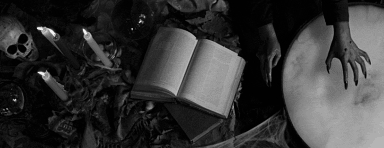
#soulmates#spellwork#find your soulmate#love spell#love spells#spells#soulmate ritual#ritual#witch craft#witch#tarot witch#witches#herbal#herbal magick#potions#magic#tarot reading#love reading#tarot cards#tarot deck#tarot#free readings#free tarot#eclectic wicca#eclectic witch#cottage witch#kitchen witch
34 notes
·
View notes
Link
Check out this listing I just added to my Poshmark closet: NEW Modelo Beer One Piece Bathing Suit Large.
0 notes
Text
Celebrate your fashion statement with Jadau Kundan jewellery

India is a celebrated country of cultures, traditions, rituals, and more. Each felicitation is marked by a gathering of people dressed beautifully, wearing makeup and jewellery. In all these expression-assisting elements, jewellery holds a special place. It is the best medium to express emotions, art, style, and personalities.
Jewellery and celebrations go hand in hand, especially when it is made of pure gold and has elaborate designs and precious gemstones. This is a characteristic of one of the most preferred types of jewellery, jadau kundan jewellery. Whether it is a wedding or grand festival celebration, this ethnic jewellery can help you make the most of your fashion statement.
A quick glance at Jadau Kundan jewellery
We are all aware of the timeless shine of gold and its value. It is a part of most jewellery types featuring different precious gemstones, like diamonds, pearls, emeralds, rubies, etc. Typically, jadau, the art of making jewellery, is used to embed these gemstones in gold-plated jewellery. This technique is mainly used on kundan, polki, and meenakari jewellery.
So, jadau kundan jewellery may refer to gold ornaments created using the jadau technique and precious stones. It is the preference of most modern brides and celebrities all around India.
Wearing this jewellery gives off a traditional vibe, and it is usually light in weight and has the lustrous shine of Kundan stones. You can even wear this to any festival celebration, like Diwali, or attend a grand party by pairing it with a saree.
Highlights from the Comparison of Polki and Kundan Jewellery
Along with Kundan jewellery, polki jewellery is popular for jadau. Here is a brief comparison of these two types.
Jadau Kundan jewellery is less expensive than Polki jewellery.
Polki is made with raw and uncut diamonds, while Kundan is a glass stone.
Kundan jewellery is light in weight, but both of these are made of gold.
In contrast to polki jewellery, which is made with a gold foil at the back, Kundan jewellery has enamelled undersides.
If you’re willing to buy such jadau jewellery, you can visit Mahabir Danwar Jewellers, a store of exemplary Indian jewellery.
0 notes
Text
Pearl Bhachu's art catalogue for Art Expo-Amritsar (Spring 2023):
by timeless amritsar & Vulcun Art Gallery (Feb 15 to April 30,2023)
The art works listed in the catalogue belong to Ar Pearl Bhachu,Amritsar. These are exhibited for sales at Art Expo- Amritsar at timeless amritsar, 8, Queens Road adjoining Popular Bakery, Amritsar till April 30,2023. For enquiries, you may reach us at [email protected]
1. The Lord Buddha

The scattering peace of meditation from within to beyond horizon.
Price : On request, Size : 24 x 24 inches, Medium: Handcarved wood fibre Board, Art work: Ar Pearl Bhachu
2. The mountains sunrise

Sunrise glow on layers of Mountains.
Price : On request, : Size : 22 x 30 in, Medium: Acrylic & oil paints on canvas , Art work: Ar Pearl Bhachu
3. Ocean

The fury of Ocean yet sea animals live happily coz they are part of it. As thus humans need to live like.
Price : On request, Size : 42 x 24.5 , Medium: Mix media (reused & recycled ) , Art work: Ar Pearl Bhachu
4. Flow of Life:

An abstract description of the life of a person who refuses to live with an urban mindset flows like rivers and leads him to flowers.
Price : on request, Size : 32 x 25 inch, Medium: Watercolors over handmade paper , Art work: Ar Pearl Bhachu
5. Blooms in yellow soil

The glowing yellow soil covering vast parts of India blooms with red flowers and wild climbers.
Price : on request, Size : 39 x 20 in, Medium: Mix Media (unused waste wood pieces) , Art work: Ar Pearl Bhachu
6. Cherry Blossoms

An abstract desciption of flowering trees, branches filled with flowers, a burst of color and fragrances riping fruits.
Price : on request, Size : 26 x 17 inch, Medium: Recycled wood, wood veneers, painted with enamel paints , Art works: Ar Pearl Bhachu
7. The Guilded Garden

An abstract description of a man-made environment made by valuable humans that merge with the natural environment rather than competing in it. Coexisting with mother nature.
Size : 25 x 17 inch Recycled wood, gold foil, mosaic tiles, with glass paints, acrylic & paint pens. Price : on request
8. Flower Garden Night

Royal gardens with selected plans and flowers, that grow wild in forests and spread mystery at night, creating an endless series of small shining stars of red & gold.
Price : on request, Size ; 25 x 17 in, Medium: Enamel paints, acrylic 3d liners on mdf board, Art work: Ar Pearl Bhachu
Artist Statement

Artist Statement: Sitting under a huge tree fascinates the nature lover in me, may be the rivers & the sea know that too. I just got high in creating a flowing intricacy not to match or compete but to celebrate the colours & inter-woven essence of Mother Nature. She blessed me to be free from human made boundation & never choose a single colour or pattern or media My creations help me to live a life independently & into the nature.
Support Partners of Art Expo-Amritsar (Spring 2023) :
Bakes & Beans cafe | Curves & Contours | Doubleshot coffee roasters | Hopping Bunnies | Kocharsons Diamonds

1 note
·
View note
Photo

Chalice and Paten, c. 1450-1480, Cleveland Museum of Art: Medieval Art
The chalice and paten-the most important liturgical vessels-are used at the altar by the priest for the consecration of the Eucharistic bread and wine during the celebration of the mass. This chalice survives with its original paten. The form of the chalice evolved over the centuries. Gothic chalices, like this one, gradually developed angular or faceted knops, generally hexagonal, with lobed feet. This sublime example is decorated with filigree enamel consisting of twisted gold wire forming a floral design, which in turn is filled with colorful glass pastes. Gemstones add to the embellishment. Size: Overall: 24.6 cm (9 11/16 in.) Medium: gilt silver and filigree enamel
https://clevelandart.org/art/1990.3
555 notes
·
View notes
Photo

Natalie Barney Place Setting, Judy Chicago, 1974-1979, Brooklyn Museum: Elizabeth A. Sackler Center for Feminist Art
© Judy Chicago Size: Runner: 51 3/8 x 30 3/8 in. (130.5 x 77.2 cm) Plate: 13 7/8 x 13 3/4 x 13/16 in. (35.2 x 34.9 x 3 cm) Medium: Runner: Cotton/linen base fabric, woven interface support material (horsehair, wool, and linen), cotton twill tape, silk, synthetic gold cord, iridescent vintage fabrics, sheer opalescent synthetic fabric, iridescent glass beads, black net, seed beads, thread Plate: Porcelain with overglaze enamel (China paint), gold metallic glaze, blue luster glaze, mauve luster glaze, gold glaze, paint, glass beads
https://www.brooklynmuseum.org/opencollection/objects/166101
38 notes
·
View notes
Photo

Cameo of Venus and Cupid, Probably a Hat Badge Mounted as a Pendant, 1575, Art Institute of Chicago: Arms, Armor, Medieval, and Renaissance
Gift of Marilynn B. Alsdorf Size: 10.8 × 4.9 cm (4 1/4 × 1 15/16 in.) Medium: Gold, chalcedony, enamel, pearls, and glass
https://www.artic.edu/artworks/119874/
36 notes
·
View notes
Text
Play.
Artist Research.
Alison Lowry.


Alison Lowry is a glass artist who employs a range of techniques to create her sculptures, working with cast glass and pate de verre.
“Pate de verre is another form of kiln casting and literally translated means glass paste. In this process, finely crushed glass is mixed with a binding material, such as a mixture of gum arabic and water, and often with colourants and enamels.
Both techniques involve many processes and sometimes the failure rate can be high, ‘Frequently I open the kiln after a firing and the piece hasn’t fired the way I wanted it too. Sometimes glass refuses to be tamed and insists on doing its own thing- I think the challenge is partly the reason I like working with it!’
Alison’s determination is invigorating and respectful. She examines how delicate life is, and how the states of birth and death can be.
She examines how clothing acts like a second skin. This is why glass is a perfect medium as it mirrors how she captures the fragility and vulnerability life can be.
‘Home Babies’

‘Home Babies’ examines the recent horror of the Tuam Mother and Baby Home in County Galway. In 2016, the bodies of 796 children were found ‘buried’ in a disused septic tank. These Homes were State sponsored and run by religious orders. They were widespread in Ireland right up to the late 1990’s. Pregnant unmarried girls were sent to have their babies in secret, so as to not cause their families ‘shame’. The children were subsequently taken away from them and adopted illegally, frequently to the US.
Alison’s work inspired by highlighting the domestic violence and violation of human rights towards the victims of the Magdalene Laundry system.
https://alisonlowry.co.uk/adress/
Flocking is the process of depositing many small fiber particles (called flock) onto a surface. ... Flocking of an article can be performed for the purpose of increasing its value in terms of the tactile sensation, aesthetics, color and appearance.
https://en.m.wikipedia.org/wiki/Flocking_(texture)
‘A New Skin.’

This work entitled 'A New Skin' is a response by Alison Lowry in collaboration with Úna Burke, to a survivor story of sexual assault.
The exterior glass skin is still vulnerable, but just like glass, is also strong and supportive. The internal glass element, although broken, has been remade using the Japanese art form of Kintsugi (mending with gold) so whilst not hiding ‘flaws’ and breaks, makes the work more valuable and unique.
https://www.museum.ie/en-IE/Collections-Research/Collection/Resilience/Artefact/Alison-Lowry’s-‘A-New-Skin’/b387a61d-7989-49d4-80b2-39a387fba6aa
I have a piece of work I destroyed cause of ill feelings towards it, it is ready to be put back together with gold tape to symbolise mending my opinion on this painting and my over critical mindset.
29/12/21.
10 notes
·
View notes
Photo
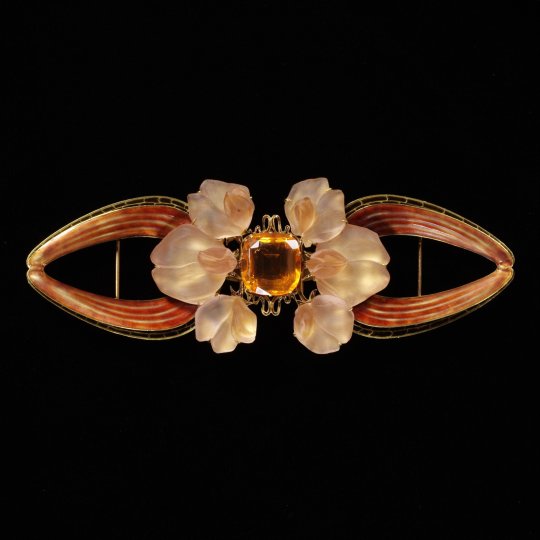
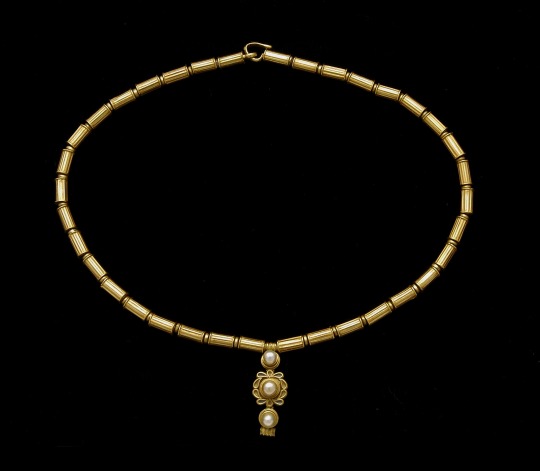
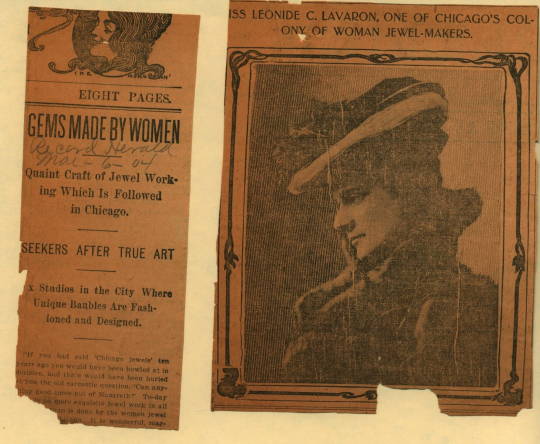
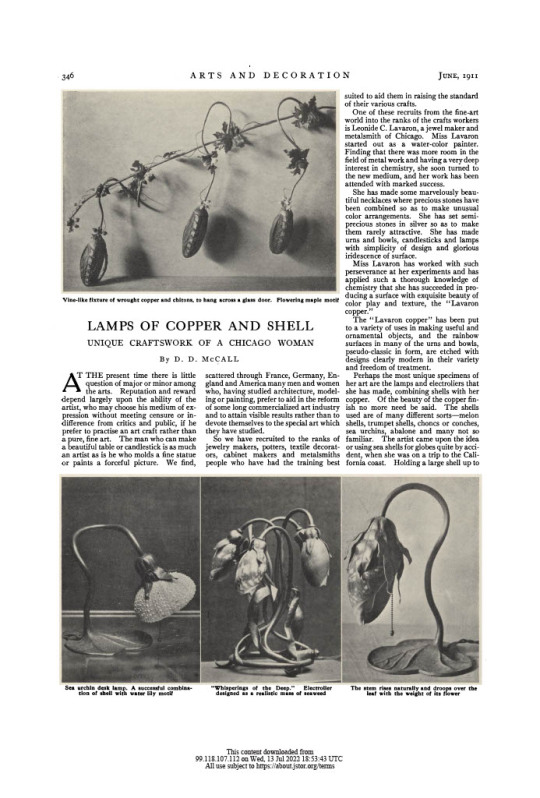
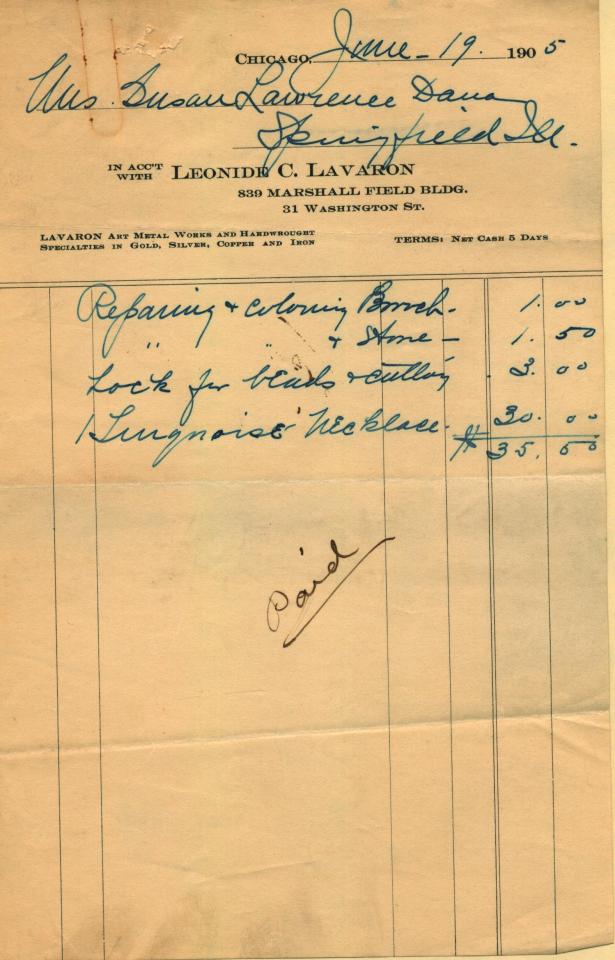
Arts and Crafts Jewelry in Chicago
As the 18th century progressed towards the 20th, artists and designers of the Arts and Crafts and Art Nouveau movements continued to look for new ways, new forms, and new materials to express their ideas about modern arts for a modern world.
Because jewelry in particular, and metalsmithing in general, had long associations with established wealth, tradition, and luxury, it was not an immediate choice of medium for artists looking to question exactly these establishments. However, as the 19th century progressed, fashionable women increasingly began to reject the diamonds, rubies, sapphires, and gold of their mothers and grandmothers in favor new kinds of jewelry inspired by nature, and the arts of the “Orient” or Medieval and Renaissance Europe.
The best known of these new jewelers was Renee Lalique, a French jeweler and goldsmith. Influenced by the Japanese art that so fascinated French artists and intellectuals of the time, Lalique’s designs featured the Art Nouveau’s characteristic sinuous, whiplash line, combined with flowers, insects, and nymph-like female forms. These delicate, organic designs rejected the traditional hierarchy of “precious” and “semi precious” gems, using instead horn, glass, opals, moonstone, and enamels to create soft, shimmering plays of color and light in jewelry who’s value was to be found in its artistic merit, not the inherent preciousness of its materials.
The Arts and Crafts movement also included jewelers and metalsmiths in its number. Like those of Art Nouveau, they often looked to nature for their inspiration, but they generally tended to look back, to the Medieval and Renaissance workshops, rather than East towards Japan. They saw the Medieval guild as the ideal form of labor organization, and workshop style hand work as the ideal form of that labor. Like Art Nouveau, Arts and Crafts jewelry emphasized the value of the art over the preciousness of the materials. It too favored the soft, shifting colors of gems like moonstone and opal, but tended to put more focus on worked metal, particularly copper and silver.
Like most major cities even today, Chicago at the Turn of the Century had a major jewelry industry, which provided a home not only for jewelers working with traditional forms and precious materials, but also the avant garde Arts and Crafts styles. As an article from the 1904 Record Herald indicates, the Chicago Arts and Crafts Society hosted a number of, notably, women jewelers. As jewelry was traditionally a masculine profession, the gender of these jewelers was of particular interest.
The article names these women as Madeline Yale Wynne, Florence H Koehler, Leonide C. Lavaron, Jessie M Preston, Christia Reade and Hannah Beye. All of these women are and were influential artists in the Arts and Crafts movement, and many of them were also active in the women’s suffrage movement.
However, Leonide Lavaron is of particular interest to us for the purposes of this article. Leonide Lavaron was born in New York to French parents. As a child, her family moved to Chicago, and after finishing her general education in the public schools, she chose to study art. A gifted chemist, she produced a treatment that produced an iridescent effect on copper, which came to be know as Lavaron Copper, and was often described as a revival of an ancient Egyptian technique.
The same Record Herald article that discusses Chicago’s women jewelers also mentions some of the prominent women that purchased it, including Susan Lawrence Dana. Dana is described as having purchased “An iridescent copper belt, the wrought links of which show infinite labor, and who’s green and gold coloring is enhanced by the chrysophases with which it is set, a rose gold ring set with a cabochon sapphire and olivines, and a set of iridescent copper buttons with turquoises…” Additionally, the Dana-Thomas House Foundation has a number of receipts for purchases or repair work from Leonide Lavaron, dating to as late as 1908.
Image 1: Bodice Ornament, Renee Lalique, 1903-04, glass, horn, citrine.Renee Lalique is one of the best know Art Nouveau jewelers. His work reflects the fluid, organic lines and natural influences of Art Nouveau, and focuses on the artistic, rather than material value of its components, frequently using non precious materials such as glass and horn. Image Credit: The Victoria and Albert Museum.
Image 2: Florence Koehler, Necklace/bracelet, ca.1905-1935, enameled gold, pearl.Like many artists in the Arts and Crafts Movement, Florence Koehler rejected mechanical, industrial models of production and contemporary ideas of what jewelry should look like in favor drawing inspiration from Medieval and Renaissance jewelry. Koehler modeled her studio practices after these historic workshop styles of production, and preferred the soft, shifting colors of moonstone, pearl and enamel over the hard shine of diamonds or polished gold. She often enameled over gold to give it a softer look. Photo Credit: The Smithsonian American Art Museum.
Image 3: “Gems Made By Women”, Record Herald, March, 6, 1904. Susan Lawrence Dana Papers, B3 Sxiii F2.Featuring an image of Leonide C. Lavaron, this article discusses several well known female jewelers and metalsmiths working in the Arts and Crafts tradition in Chicago at the Turn of the Century. It also mentions some of the wealthy women who purchased this jewelry, including Susan Lawrence Dana, who bought a number of pieces from Lavaron. Photo Credit: The Dana-Thomas House Foundation.
Image 4: “Lamps of Copper and Shell:Unique Craftwork of a Chicago Woman”, D.D. McCall, Arts and Decoration (1910-1918), June, 1911, Vol. 1, No. 8, PP. 346-347. Leonide C. Lavaron was one of several Chicago women making jewelry and metalwork in the Arts and Crafts style in Turn of the Century Chicago. She was particularly known for her copper work and chemistry knowledge, and developed an iridescent patina that came to be known as Lavaron Copper. Image Credit: Jstor.
Image 5: Receipt for Jewelry and Repair Work from Leonide C. Lavaron, June 19,1905, Susan Lawrence Dana Papers B3 Sxiii F2.Susan Lawrence Dana bought several pieces from Lavaron at her shop in the Marshall Field Building. In addition to the pieces described in the Record Herald article, several receipts for purchases and repair work dating from 1905 to 1908 are known to exist in the Susan Lawrence Dana Papers. Photo Credit: The Dana-Thomas House Foundation.
#art history#art nouveau#Arts and Crafts#chicago#chicago art#women artists#Metalworking#jewelry#chicago history#women history
5 notes
·
View notes
Photo

Vase, 1850, Minneapolis Institute of Art: Decorative Arts, Textiles and Sculpture
vase in shape of giant Rhine wine glass; flowers embossed with gold and enameled; Bohemian/Czechoslovakian Size: 16 3/4 x 6 1/4 x 6 1/4 in. (42.55 x 15.88 x 15.88 cm) Medium: Glass
https://collections.artsmia.org/art/19641/
6 notes
·
View notes
Text

• Suite of jewelry.
Culture: French (?)
Date: mid-19th century
Medium: Gold metal, enamel, and glass pearls.
#19th century#19th century fashion#19th century jewelry#mid 19th century#history of fashion#fashion history#fashion#jewelry#suite of jewelry#earrings#bracelet#brooch
741 notes
·
View notes
Photo

Mosque Lamp, 13th-14th century, Brooklyn Museum: Arts of the Islamic World
Size: includes base, now detached: 12 x 8 in. (30.5 x 20.3 cm) without base, now detached: 9 1/2 x 8 in. (24.1 x 20.3 cm) base (now detached): 2 1/2 x 4 in. (6.4 x 10.2 cm) Medium: Colorless glass; blue, green, red, yellow, and white enamels; and gold; free blown, applied, enameled, and gilded; tooled on the pontil
https://www.brooklynmuseum.org/opencollection/objects/12543
8 notes
·
View notes
Link
Check out this listing I just added to my Poshmark closet: NEW Modelo Beer One Piece Bathing Suit Large.
0 notes